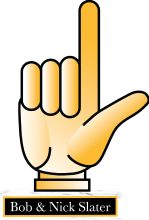Leave Your ‘Whole Self’ at Home!
“Be yourself; everyone else is already taken.” Oscar Wilde
You’re successful, accomplished, and on your way to a long and prosperous career. Or, at least, you soon will be. But you’re so much more than just a professional! In fact, your manager and coworkers don’t even get to see the “real” you, the best you. You at your most honest, most vulnerable, and most interesting. That you is reserved for your friends, your family, and those you see after work and on weekends. But what if there were a way to bring that version of you to work every day? Surely that could only lead to good things for your career, right?
Actually, maybe not so much. Instead, here’s a suggestion: resist the temptation to bring your “whole self” to work. “Whole self” is a trendy term and concept that has proliferated as Gen Z has hit the workforce over the last few years. It has become even buzzier since the workforce slowly trickled back to the office after Covid. Here’s a summation of the concept: instead of your “work self” and your “real self,” which traditionally remained distinct and often seemingly at odds with each other, the two are blended. The resultant “whole self” is everything that makes you “you,” and that’s what you are going to bring to work. If this definition sounds nebulous, that’s because it is. But we bet that you know what we mean.
In practice, embracing your whole self means that you bring your personal business to work with you. Your politics, your religious beliefs, your idiosyncrasies. This can be especially tempting now, with politics — at least in the USA — at a raging boil. You’ve got opinions about important stuff and people need to hear them, dang it! “Real life” — that is, non-work — issues are often more important than what you do at work every day. Family and health stuff? That trumps a work presentation. But we’re not talking about a one-off issue. We’re talking about how you present yourself at work every day, and what you choose to share with those you work with. And we suggest it’s best if you don’t bring “all of you” to work.
 Not all would agree with us, of course. Sheryl Sandberg, formerly of Facebook/Meta, urges young professionals to “Bring your whole self to work . . . it is all professional and it is all personal.” But she arguably took the ‘whole self’ concept too far, as Ms. Sandberg’s former company is now investigating her for using company resources to plan her wedding.
Not all would agree with us, of course. Sheryl Sandberg, formerly of Facebook/Meta, urges young professionals to “Bring your whole self to work . . . it is all professional and it is all personal.” But she arguably took the ‘whole self’ concept too far, as Ms. Sandberg’s former company is now investigating her for using company resources to plan her wedding.
Why not bring your whole self? Because doing so can cost you dearly. Consider this scenario: you are in the office and engaged in conversation with a co-worker that you are close to; the discussion is about the hot-button political issue of the time, but you are speaking quietly and no one else is around. No danger, right? But somehow someone — perhaps your manager or other office decision-maker — overhears your conversation, disagrees with your position, and files that information away for later. She might even do so subconsciously. And later, perhaps that information doesn’t cost you your job, but what if it gets in the way of a promotion? A raise? A project assignment that could have raised your profile within the organization? You might miss out, and you would never know why. Even worse, it was a completely self-inflicted and very avoidable wound. If this is a conversation that you wish to engage in, fine, but do so after work and away from the office.
Your “whole self,” amazing as it doubtlessly is, doesn’t need to be present in order for you to do an amazing job at work. In fact, it will likely only get in the way. Moreover, delineating between the professional and the personal only serves to protect you when the inevitable setback happens at work. You can take comfort in the fact that the reason for the setback is not personal, and thus not a reflection of your value as a person. It’s merely professional and, as we always stress, there are very learnable skills that will make you a better professional if you take the time to learn them. In fact, we know a great book that can help with that very thing!
Of course, whether you are a manager or a subordinate, there is a benefit to knowing the people on your team on a more personal level. You might learn their politics, what hobbies they are into, even a bit about their personal relationships — and that’s fine. In fact, in LOA! we recommend that managers take the time to really get to know their people. If you’re working together closely over a long period of time, it is perhaps inevitable. But don’t forget what you — and your team — are getting paid to produce for the company. Personal stuff has a tendency to get in the way of that work. So cultivate personal relationships — carefully — with the people you work with as needed but keep your professional standing and goals paramount.
Please don’t misconstrue the message here: we will never advocate that you stop “being you.” Just, be the best professional version of yourself when you’re at work. If something feels iffy, err on the side of (professional) caution. Can you remain authentic while leaving the personal stuff at home? We think so. Try it, and we bet that your performance, your career, and — just as importantly — your happiness will flourish.
Sources: There is controversy as to whether Oscar Wilde actually said the above quote. The internet claims that he did, but original sourcing is impossible to find.
Need a little motivation and guidance to get you on the right track to succeed in your career? Look Out Above! will help you get ahead and stay ahead.


